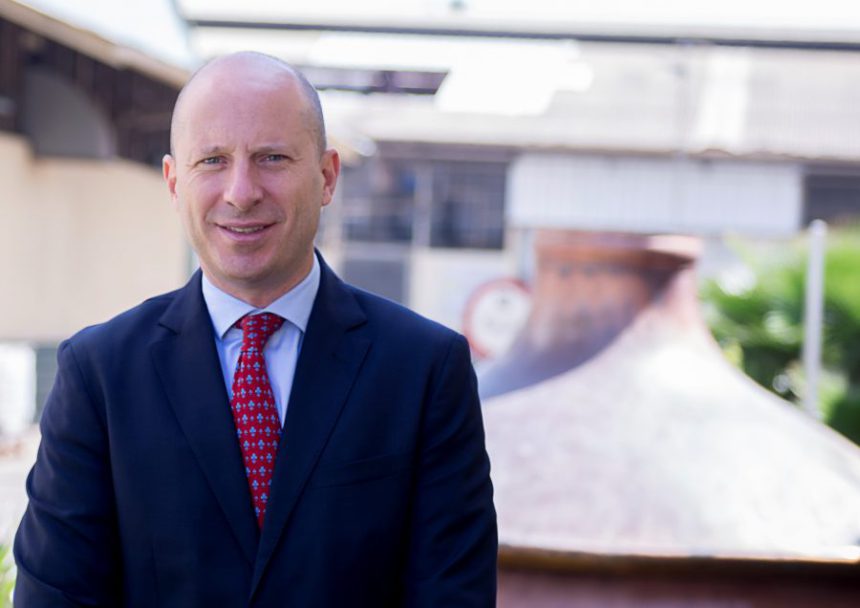Nigerian Breweries Plc (“NB Plc” or the “Company”) reported its first-quarter (Q1) 2021 results on April 23, 2021.
The company’s performance was impressive considering the headwinds it faced late in 2020 and early 2021 from inflationary pressures, poor consumer purchasing power, lethargic economic growth, and increase in the company’s beer prices which took effect from Q4 2020.
The company achieved a net revenue for the three months to March 31, 2021 of N105.68 billion compared to N83.23 billion for the same period to March 31, 2020 — a 27% increase compared to the Q1 2020 results.
It also achieved a N39.67 billion gross profit — a 13.7% increase in gross profit compared to Q1 2020.
Quarter-on-quarter EBITDA rose by 22.8% from N19.82 billion in Q1 2020 to N24.34 billion in Q1 2021. Other positive outcomes quarter on quarter were the increase in operating income (from N10.94 billion to N14.49 billion), profit before tax (from N8.3 billion to N11.51 billion), and profit after tax (from N5.53 billion to N7.66 billion).
It was not all hunky-dory for the company as its cost of sales (direct costs attributable to NB Plc’s production) jumped from N48.3 billion in Q1 2020 to N66 billion in Q1 2021, an increase of N17.7 billion. According to the company, its costs are subject to seasonal fluctuations as a result of weather conditions and festivities. As a result, the company’s results and volumes are dependent on the performance in the peak‐selling season, typically resulting in higher revenue and profitability in the last quarter of the year.
The total cost of sales, marketing and distribution, and administration expenses grew from N72.47 billion in Q1 2020 to N91.63 billion in Q1 2021 – a jump of 26.43%. This jump was largely attributable to the cost of raw materials and consumables which grew to N46.53 billion (compared to N30.2 billion for the same period in Q1 2020).
The raw materials cost pressure has been a trend since Q2 2020 driven by the rising commodity prices, foreign exchange devaluation and domestic inflationary pressures. As a result, the cost of the raw materials to net income ratio has continued to rise. This ratio was 36.3% in Q1 2020 but has risen to 44% in Q1 2021.
What may be a source of particular concern for the company is how well working capital is being managed from a liquidity and leverage perspective. The company reported cash and cash equivalents of N30.37 billion in Q1 2020, this had dropped to N18.43 billion by Q1 2021. In the same period, trade debtors and other receivables (i.e., those that owe the company for purchases that have not been paid for) had increased from N11.42 billion in Q1 2020 to N23.48 billion in Q1 2021, an increase of over 105% in just 12 months!
More worrying, in terms of magnitude, are trade creditors and other payables (i.e., those that the company owes payments for goods and services purchased) which grew from N139.2 billion in Q1 2020 to N145.41 billion in Q1 2021, a rise of N6.21 billion (or 4.5%) in just 12 months.
While the company’s loans and borrowings had reduced significantly (short-term loans in Q1 2021 was N35.65 billion versus N39.64 billion in Q1 2020; and long-term loans in Q1 2021 was N15.87 billion versus N51,81 billion in Q1 2020), the cost of borrowing, that is, interest expenses that the company paid on borrowed funds, rose from N2.7 billion in Q1 2020 to N3 billion in Q1 2021. This suggests that while short term and long-term borrowing have reduced, working capital needs are being refinanced at a higher cost or alternatively, most of the reduced short term or long-term borrowings have simply been restructured from longer-term loans to shorter-term overdrafts and commercial papers with a higher interest expense. The balance sheet as of Q1 2021 showed a liability in the form of bank overdraft and/or commercial papers of N21.44 billion which was not in the books in Q1 2020.
The first-quarter report also showed that as of March 31, 2021, the company had revolving credit facilities with five Nigerian banks to finance its working capital with the approved limit of the loan with each of the banks ranging from N6 billion to N15 billion (total N66 billion). N9 billion of the available amount was utilized at end of March 2021 (2020: Nil).
It should be noted that NB Plc’s financial statements for the 3 months ended 31st March 2021 are yet to be independently audited, so the results may be further improved or be worse, depending on the views and professional opinion of the external auditors in terms of accounting treatments and management judgement on significant transactions.
From the company’s numbers and explanations, the results are clearly driven by:
(1) Benefits from its increased pricing with the raised prices taking effect from December 10, 2020. The increases ranged from 5.2% to 6%, mainly on selected brands packaged in aluminium cans and on the 600-ml Star Larger returnable glass bottle.
(2) Volume growth in its premium brands (particularly Heineken) and non-alcoholic portfolio (particularly Maltina).
(3) Relative inelastic demand for its portfolio mix despite price increases, availability of substitutes, and stagnate consumer wages eroded by inflation. In economics, inelastic demand occurs when the demand for a product remains static or changes less than changes in price.
Overall, the company achieved outstanding results that would have confounded analysts’ estimates. Given continued inflationary trends and currency depreciation, it would be interesting to see whether turnover and profitability growth are sustainable over the remaining quarters of the year. On its financial year 2020 performance, the company paid a final dividend of NGN0.69 in April 2021 (interim of NGN0.25 paid in December 2020). If the trend is sustained, it can only be good news for NB Plc in terms of increases in its share price and dividends for its shareholders.
Heineken Brouwerijen B.V owns 37.73% of the company to which NB Plc pays annual technical service fees and royalties.
